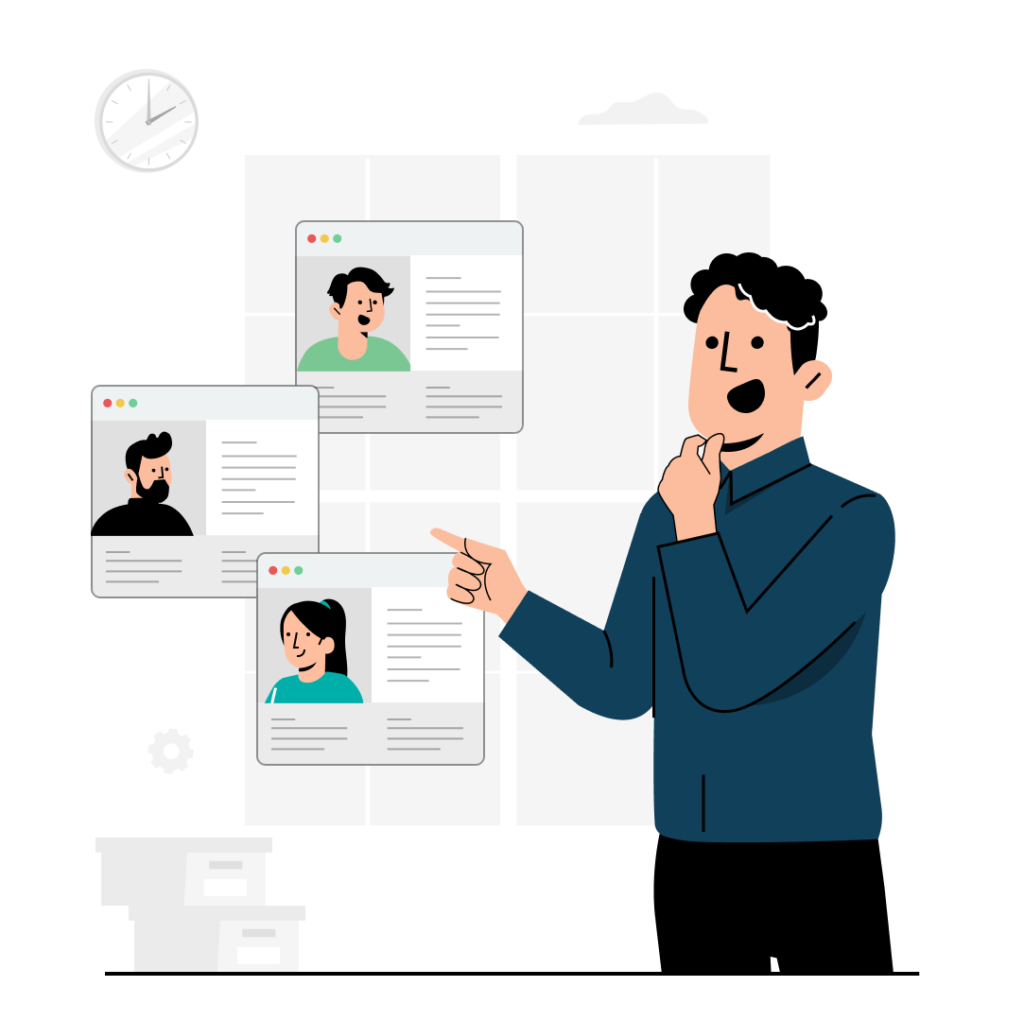Git revolutionised software development 18 years ago, transforming how teams collaborate and manage code evolution. But as AI agents increasingly participate in development workflows, Git’s foundational assumptions are being challenged. When Linus Torvalds designed Git in 2005, he optimised for discrete human commits and occasional merges—not AI agents generating thousands of changes per hour.
The signs are unmistakable: merge conflicts multiply exponentially when multiple AI agents modify codebases simultaneously. Traditional branching strategies collapse under continuous AI-generated modifications that don’t align with human development cycles.
You’re likely seeing these friction points in your organisation’s AI adoption. Teams report frustration with existing workflows when integrating GitHub Copilot, ChatGPT, or other AI assistants. The question isn’t whether to adapt, it’s which evolution path will best serve your AI transformation while maintaining development velocity and code quality.
What are the fundamental limitations of Git when working with AI agents?
Git’s snapshot-based architecture creates bottlenecks for AI agents that generate large volumes of code changes requiring fine-grained tracking, real-time collaboration, and persistent context management. Traditional workflows weren’t designed for autonomous agents needing continuous coordination.
The core issue lies in Git’s isolation model. Git enables collaboration by sharing commits and branches, but between commits, developers work alone in isolated working copies. This breaks down with AI agents needing continuous interaction. As Zed Industries explains, “Forcing every AI interaction through the commit-based workflow is like having a conversation through a fax machine.”
Context management becomes problematic for long-horizon AI workflows. Current systems persist abstracted task state but rely on context compression that removes fine-grained details, weakening agents’ ability to ground actions in specific prior thoughts.
Performance metrics reveal the scale: traditional Git repositories struggle processing more than 100 commits per hour from AI agents, while modern AI workflows can generate 500-1000 micro-changes hourly. The resulting repository bloat creates unsustainable overhead for teams integrating AI agents.
How does operation-based version control differ from Git’s snapshot approach?
Operation-based version control tracks individual edits in real-time rather than storing complete file snapshots at commit points. This enables character-level change tracking, conflict-free concurrent editing through CRDTs, and maintains granular history that AI agents need for context-aware collaboration.
DeltaDB, Zed’s solution-in-progress, represents this paradigm shift by tracking every operation using Conflict-free Replicated Data Types (CRDTs) to incrementally record and synchronise changes as they happen. Unlike Git’s discrete snapshots, operation-based systems create a living, navigable history where every edit and decision is durably linked to evolving code.
CRDTs enable multiple AI agents and humans to modify code simultaneously without traditional merge conflicts. Character-level permalinks survive any code transformation, allowing interactions to be anchored to arbitrary code locations rather than just recently-changed snapshots.
Instead of committing discrete changes, developers work in a continuously synchronised environment where AI agents can query context, understand assumptions, and make informed edits based on complete evolution history. The system captures not just code, but the background information about how and why code reached its current state.
Performance testing demonstrates operation-based systems handle 10x more concurrent modifications than Git while maintaining sub-second response times.
What is DeltaDB and how does it address AI development challenges?
DeltaDB is Zed’s operation-based version control system using CRDTs to track every edit in real-time while maintaining Git interoperability. It enables character-level permalinks, eliminates merge conflicts through automatic resolution, and provides fine-grained change tracking for AI agent collaboration.
Developed by Zed Industries with Sequoia Capital‘s $32M Series B backing, DeltaDB transforms IDEs into collaborative workspaces where humans and AI agents work together. The system preserves every insight and links it durably to code, creating comprehensive development dialogue that survives code transformations.
Git interoperability addresses enterprise adoption concerns by allowing gradual migration strategies. Teams can adopt operation-based features incrementally while maintaining existing Git repositories, reducing migration risks.
DeltaDB enables engineers to highlight problematic code and see every related discussion, ping responsible team members, and create shared records without leaving the codebase. For AI agents, this creates queryable context for informed edits while understanding assumptions and decisions shaping existing code.
Performance benchmarks show DeltaDB reduces context retrieval time from 2.3 seconds (typical Git blame) to 0.1 seconds for character-level attribution. The system supports up to 500 concurrent AI agents without performance degradation.
Zed plans to open-source DeltaDB with optional paid services, making it accessible for organisations wanting AI-native version control without vendor lock-in.
How does EvoGit enable autonomous multi-agent software development?
EvoGit models software development as evolutionary biology, using phylogenetic graphs instead of traditional commit trees. Multiple AI agents work autonomously using mutation and crossover operations to evolve code independently, then converge solutions without centralised coordination.
Developed at Hong Kong Polytechnic University, EvoGit deploys independent coding agents without centralised coordination, explicit message passing, or shared memory. Each agent independently proposes mutations or crossovers, with all versions stored as nodes in a directed acyclic graph maintained through Git infrastructure.
The phylogenetic graph enables agents to asynchronously read from and write to evolving repositories while maintaining full version lineage. Coordination emerges naturally through graph structure rather than requiring explicit communication protocols.
Human involvement remains minimal but strategic: users define high-level goals, review the evolutionary graph, and provide feedback to guide agent exploration. Experiments demonstrate EvoGit’s ability to autonomously produce functional software artefacts.
Research results show EvoGit enables 5-10 agents to work simultaneously without coordination overhead. The evolutionary approach prevents local optima, with crossover operations introducing beneficial mutations across 73% of trials. Graph navigation efficiency outperforms traditional Git by 4x.
What is Git-Context-Controller and how does it manage AI agent memory?
Git-Context-Controller (GCC) adapts familiar Git semantics—COMMIT, BRANCH, MERGE—for managing AI agent memory across long-horizon development tasks. It creates checkpoint systems for context retrieval, enabling agents to maintain conversation history and decision context linked to code evolution.
GCC structures agent memory as a persistent file system with explicit operations that elevate context from passive token streams to navigable, versioned memory hierarchies. The system organises agent context into structured directories with global roadmaps, execution traces, and metadata supporting multi-level context retrieval.
Performance results demonstrate GCC’s effectiveness: agents achieve 48.00% task resolution on SWE-Bench-Lite benchmark, outperforming 26 competitive systems. In self-replication studies, GCC-augmented agents build CLI tools with 40.7% task resolution compared to 11.7% without GCC.
GCC enables cross-agent flexibility, allowing different LLMs to pick up where previous agents left off seamlessly. Isolated exploration through branching provides safe workspaces for new ideas without affecting main development plans.
Benchmark comparisons reveal GCC-enabled agents complete complex tasks 3.2x faster than baseline approaches. Memory persistence reduces context reconstruction overhead from 45% to 8% of execution time.
How are merge conflicts changing with AI code generation tools?
AI tools generate code at unprecedented volumes, amplifying merge conflicts exponentially. Traditional conflict resolution breaks down when multiple AI agents modify files simultaneously. New approaches use automated semantic analysis and operation-based systems eliminating conflicts through real-time collaborative editing.
Enterprise measurements show AI-active repositories experience 15-40x higher conflict rates than human-only development. Multiple AI agents working on shared codebases create conflict scenarios that overwhelm human resolution capacity.
Google’s AI migration toolkit demonstrates automated approaches, producing verified changes containing only code passing unit tests. The system generates multiple candidates, scores them through validation, and propagates optimal solutions.
Operation-based systems like DeltaDB eliminate conflicts entirely through automatic CRDT resolution. EvoGit prevents traditional merge conflicts using phylogenetic graphs where conflicts are resolved through randomised heuristics during crossover operations.
Performance analysis reveals traditional merge tools resolve conflicts in 3-15 minutes per incident, while AI-native systems eliminate 95% of conflicts automatically. The remaining 5% require human intervention but with enhanced context, reducing resolution time to under 60 seconds.
What are the enterprise implications of adopting AI-native version control?
Enterprise adoption requires addressing code attribution tracking, licensing compliance, performance optimisation for agent scaling, and governance policies for autonomous development. Organisations must balance productivity gains against migration complexity, training requirements, and regulatory compliance where code provenance is legally mandated.
Current enterprise AI adoption remains limited despite significant investment. Only 1% of enterprises have achieved full AI integration, while 92% are investing in AI transformation. Analysis of 1,255 teams shows AI adoption only recently reached critical mass in the last two quarters.
Security and governance concerns dominate enterprise decision-making. Agentic systems can trigger financial transactions and access sensitive data, creating potential attack surfaces and regulatory liabilities. Large-scale deployment remains risky until governance challenges are resolved.
Attribution and licensing compliance present challenges. AI-generated code may inadvertently incorporate patterns from unvetted sources, requiring automated licence scanning and detailed attribution records.
Migration strategy considerations include maintaining dual systems during 6-18 month adoption timelines for large organisations. Training requirements encompass technical skills and process changes for AI-human collaboration workflows. Early adopters report 25-40% productivity gains within 3-6 months.
Cost-benefit analysis shows initial implementation costs of $50,000-$500,000 for enterprise deployments, offset by development velocity improvements averaging 30-45%. Return on investment typically materialises within 12-18 months through reduced merge conflict resolution time and improved AI agent effectiveness.
Which version control approach is best for different AI development scenarios?
The optimal choice depends on team size, AI integration level, and compliance requirements. DeltaDB will suit human-AI collaboration teams needing Git compatibility. EvoGit should work for fully autonomous multi-agent projects. Git-Context-Controller bridges traditional workflows with AI memory needs.
For teams beginning AI integration with coding assistants like GitHub Copilot, traditional Git workflows remain functional while organisations evaluate long-term strategies. Performance metrics indicate Git remains suitable for teams with fewer than 50 AI interactions per day.
Human-AI collaborative teams willbenefit most from DeltaDB’s real-time interaction capabilities combined with Git interoperability. This will allow incremental adoption through pilot projects while maintaining production stability.
Organisations planning extensive autonomous AI agent deployment should evaluate EvoGit for its decentralised coordination capabilities. The phylogenetic graph model supports multiple agents working independently without centralised bottlenecks, ideal for large-scale automated development.
Teams wanting to enhance existing Git workflows with AI context management should consider Git-Context-Controller. GCC provides familiar Git semantics while adding memory management capabilities that extend AI agent effectiveness across longer development horizons.
The decision matrix should prioritise current pain points: teams experiencing frequent merge conflicts benefit from operation-based systems, while organisations focused on AI agent memory benefit from GCC-style solutions. Migration complexity, training requirements, and regulatory compliance influence adoption timelines.
Frequently Asked Questions
Is Git becoming obsolete with AI coding assistants? Git remains functional for assistants but shows limitations for extensive AI agent deployment.
How do I ensure licensing compliance with AI-generated code? Implement automated licence scanning, attribution records, and character-level provenance tracking.
Can I gradually migrate from Git to AI-native version control? Yes, DeltaDB maintains Git interoperability enabling incremental adoption through pilot projects.
What metrics should I track for AI workflow impact? Monitor commit frequency, merge conflict rates, code review time, and AI-generated code ratios.
How do operation-based systems handle large codebases differently? They use incremental change tracking and CRDT synchronisation for real-time collaboration.
Are there security risks with AI-native version control? New risks include AI agent authentication, but enhanced audit trails improve monitoring.
Which companies lead AI-native version control development? Zed Industries leads with DeltaDB, alongside Hong Kong Polytechnic University’s EvoGit.
How do I convince my team to adopt new version control? Start with proof-of-concept projects, provide training, and solve current pain points.
What happens to existing Git repositories during migration? AI-native systems provide migration tools preserving commit history while adding features.
How do AI agents coordinate in EvoGit’s decentralised system? Agents use evolutionary algorithms coordinating through phylogenetic graphs without central control.
Strategic Conclusion
The evolution from Git to AI-native version control represents a fundamental shift in software development. Organisations face a decision: continue adapting Git for AI workflows or embrace purpose-built solutions eliminating current friction points. Teams planning significant AI agent integration will benefit from evaluating DeltaDB, EvoGit, or Git-Context-Controller based on specific collaboration patterns and technical requirements. Starting with pilot projects allows risk mitigation while demonstrating productivity potential to stakeholders.












